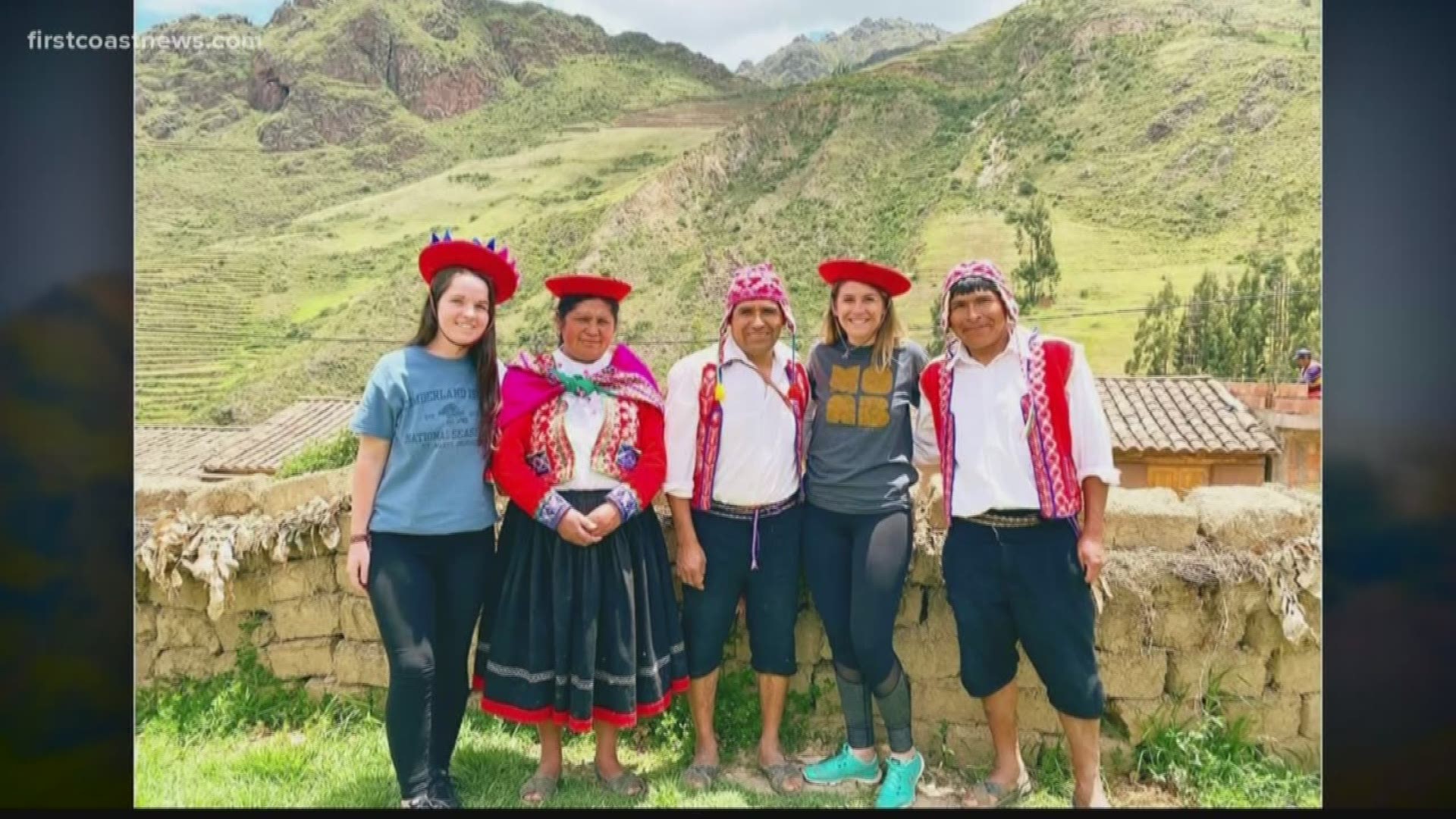JACKSONVILLE, Fla. — It was the backpacking trip of a lifetime for Jacksonville native Amanda Suto and her friends until Peruvian President Martín Vizcarra declared a national state of emergency due to the coronavirus, closing the nation’s borders.
The order gave foreign travelers less than 24 hours to evacuate the country before closing the country’s borders.
“Hundreds of thousands of people were stranded at the airport,” Suto said. “It was getting pretty crazy so we decided to leave, there wasn’t really anything we could do.”
Air, land and sea travel have all been halted.
Suto and her friends are away from their jobs and are spending a fortune for basic necessities, including a hotel stay that had to be prepaid through March 31.
“Not only do we need to pay for the hotel services, but also the food,” she said.
Suto said food can be bought at grocery stores, but only one person per household can go out to the store and has to walk the group’s groceries all the way back to the hotel. Because of this struggle, Suto says many guests at the hotel choose to eat at the hotel’s restaurant—which is $10 per meal.
Just like in the US, masks and gloves are nearly impossible to get ahold of, but they’re required to be worn to go out in the streets before the curfew set at 8 p.m. Suto says these measures are heavily enforced with a great police presence.
“It’s not fun seeing them with huge guns. It’s scary actually,” she said. “They’re starting to step inside the hotels making sure everybody’s just restricted to just their rooms.”
Thousands of Americans are in Suto’s shoes. An “Americans stuck in Peru” Facebook group emerged, growing to nearly 5,000 members.
The Facebook group shares a google doc asking all who are stuck to record their names and whereabouts to raise awareness of the growing number of stranded Americans.
“I know at least 800 have been rescued,” Suto said. “But that still leaves a very large number of people left.”
Suto was sent a letter Wednesday morning from the U.S. Embassy, stating flights are being made available for the elderly and those with medical conditions. As for Suto, she remains in the dark on when she will actually be able to get home.
“It’s going to be a while until we’re even thought of to leave,” she said.

